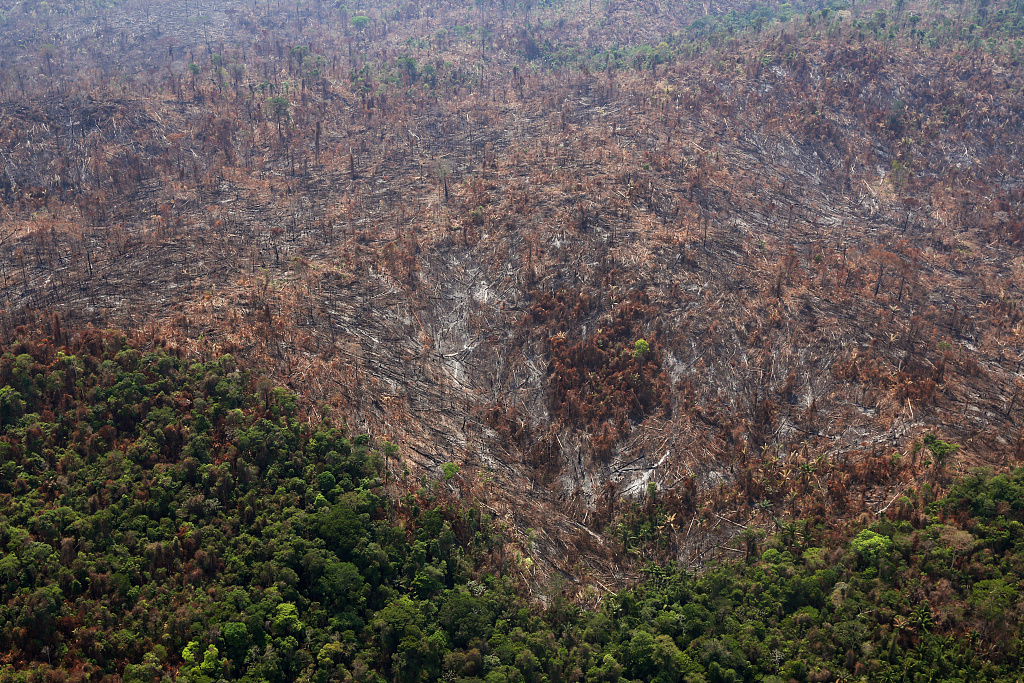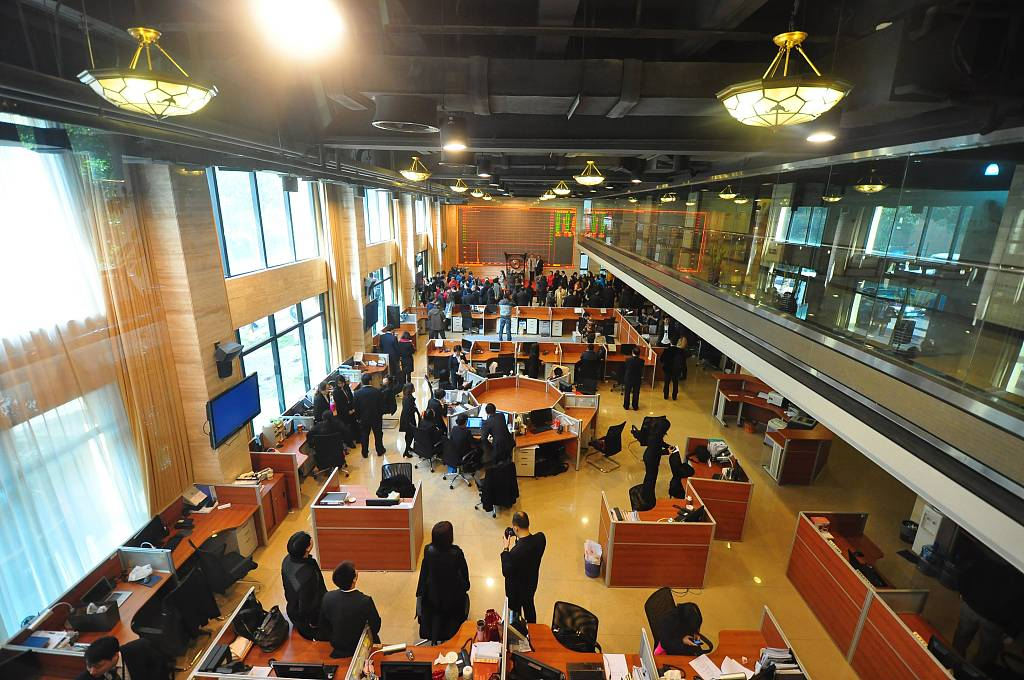04:28

Editor's note: The UN Climate Action Summit 2019 takes place on September 21-23 in New York. In this episode of "Come Together" series, CGTN looks at how the Amazon burning fires impact the global environment, and China's efforts in addressing climate change.
On August 6, 2019, record-breaking fires broke out in the Amazon rainforest, known as the "lungs of the Earth," triggering global concern. The fires are still burning today.
"First, the fires release a large amount of carbon dioxide into the air. Second, mass deforestation reduces the forests' ability to absorb carbon dioxide," Lin Yanluan, professor at Tsinghua University, told CGTN.
The Amazon rainforest accounts for more than half of the world's total rainforest area. It produces 20 percent of the Earth's oxygen while absorbing a vast amount of carbon dioxide. However, it has long been threatened by fires. According to Brazil's National Institute for Space Research, more than 70,000 fires was spotted nationwide in August 2019, an 85-percent increase from last year.
"Several studies suggest that if more than 20 percent of the Amazon rainforest were deforested, its whole ecosystem would reach a tipping point. After reaching this critical threshold, the Amazon would slowly turn into, a tropical grassland, for example, and the impact would be massive," Lin noted.

A burnt plot in Jamanxim National Forest in the Amazon, near Novo Progresso, Para state, Brazil, September 11, 2019. /VCG Photo
A burnt plot in Jamanxim National Forest in the Amazon, near Novo Progresso, Para state, Brazil, September 11, 2019. /VCG Photo
"Now, if before the Amazon cleaned carbon from the air, afterward it might became a new source of carbon emissions," he continued.
On a more positive side, leaders and representatives of the seven South American countries, namely Colombia, Bolivia, Ecuador, Brazil, Peru, Suriname, and Guyana, on September 6 signed a pact to create an Amazon rainforest disaster response network and satellite surveillance to battle logging and forest fires while conducting rainforest reconstruction.
Dr. Lu Chunhui, associate research fellow with the National Climate Center at the China Meteorological Administration, has studied climate change for over 10 years. In his opinion, people could do three things to fight climate change: First, acknowledge the existence of climate change; second, save energy and reduce emissions; third, adapt to climate change.
"The global average temperature has risen about 1.1 degrees Celsius over the last 100 to 150 years. Such a phenomenon is not natural. That is to say, if there is no carbon dioxide emitted by human activities, it would not have risen so dramatically," Dr. Lu told CGTN.
"Climate change is real. We also recognize this fact, and we are now working on fighting against it," he added.
As the most populous and largest developing country in the world, China firmly upholds multilateralism and has always been an active participant and defender of multilateral efforts to address climate change.
For instance, China has taken action in nine aspects to address the issue, including nature-based solutions, energy transition, and industrial transformation, according to China's Ministry of Ecology and Environment. Among them, a nationwide carbon emission trading system that officially launched in 2017 is the world's largest carbon trading market, representing China's commitment to the Paris Agreement.

Regional carbon trading market in Shanghai. /VCG Photo
Regional carbon trading market in Shanghai. /VCG Photo
By December 2018, China had cut its carbon emission by 45.8 percent from the 2005 level, meeting its 2020 carbon target, which aims to lower emissions by 40 to 45 percent ahead of schedule. By June 2019, seven pilot regions had seen a total trading quota of about 330 million tons of carbon dioxide, equivalent to around 7.1 billion yuan (1 billion U.S. dollar.)
"There is a growing recognition of the efforts that China is doing in order to reduce its emissions to become a leader in clean technologies to really be able to share their good experiences with different countries in the world," said Patricia Espinosa, Executive Secretary of the United Nations Framework Convention on Climate Change.
"China always has been critical and very positive. In Paris, China really contributed a lot in reaching the Paris Agreement. And over the past four years, China really delivered very well. So I think China has set one of the good examples for the world that the energy transition is possible, so economic transition also is possible," Liu Zhenmin, Under-Secretary-General of UN, told CGTN.
"For the United Nations, I think we are quite confident that countries like China and some Europeans, and even some other emerging economies, I think they are doing very well," he said.